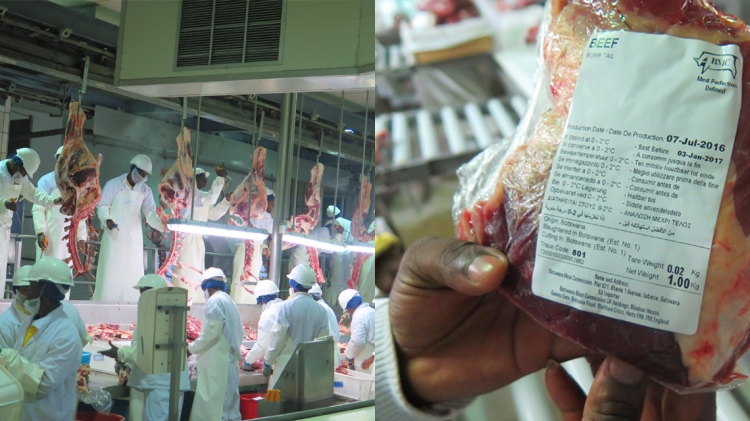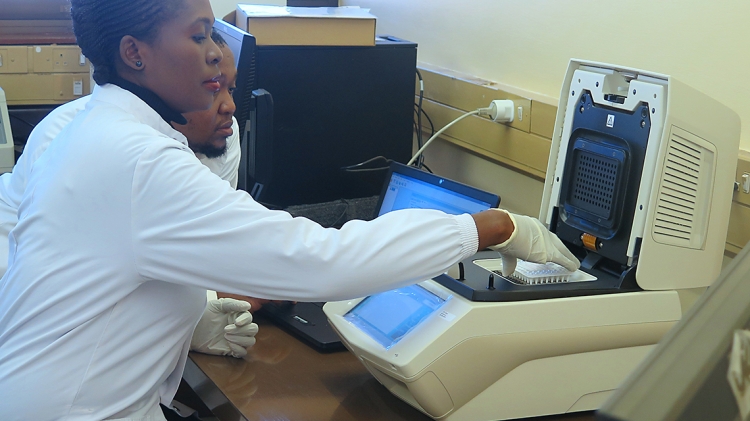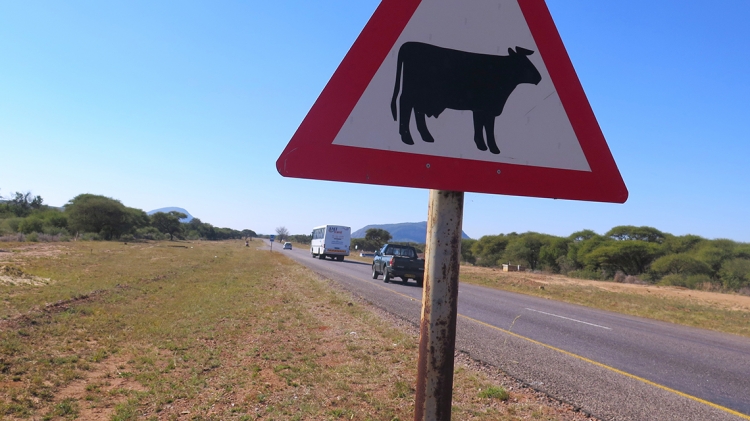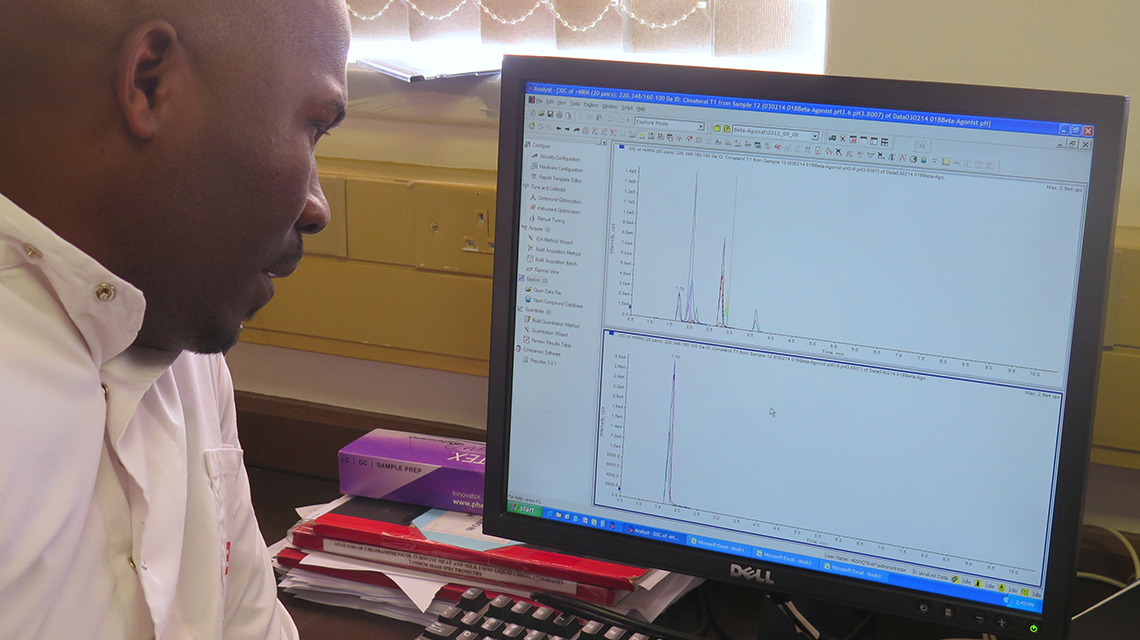Lobatse, Botswana – In Botswana, cattle is a way of life. Owning and herding cattle and selling animals for quick cash when money is tight provide the livelihood for much of the rural population and represent an important supplementary income for city dwellers. When in 2008 the European Union (EU) tightened sanitary requirements on beef imports, Botswana’s second largest export industry came to the verge of losing its most important and lucrative market: it had neither the equipment nor the know-how to perform the tests required.
Since then, the use of nuclear and nuclear-derived techniques, introduced with support from the IAEA in collaboration with the Food and Agriculture Organization of the United Nations (FAO), has enabled the country to put in place veterinary and food safety surveillance systems that meet EU requirements and have successfully passed inspections.
“It is very important that we can protect our export markets by demonstrating the absence of disease and food contamination thanks to the use of these modern techniques,” said Kekgonne Baipoledi, Deputy Permanent Secretary at the country’s Ministry of Agriculture. “The economic situation of most farmers has improved as a result.”
Beef is the largest non-mineral export commodity of the country, accounting for 3.3% of total exports. In contrast to minerals such as diamond and nickel, the export performance of beef has a direct impact on the livelihood of a large segment of the population, many of whom are small-scale farmers. Botswana has 3 million cattle and 1.6 million goats for its 2 million people. A suspension of Botswana’s beef exports to the EU could hurt the country significantly. In 2011, Botswana suspended beef exports to the EU for a short period of six months at an estimated €48 million in lost revenues.
Botswana Country of Herds.
The focus of successive IAEA technical cooperation projects has been to build local capacity in analysis covering an increasingly wider scope of diseases, veterinary drug residues and other contaminants. By the end of this year, the Botswana National Veterinary Laboratory (BNVL) will be able to carry out all of the required tests in-house, and sending samples for lengthy and costly testing in Europe will no longer be necessary, said Chandapiwa Marobela-Raborokgwe, head of BNVL. The lab can now perform tests for 13 different substances. This will reduce costs by over half and lower test turnaround time from around nine months to less than a month.
Securing a market where we can derive better prices for our products is of great importance. The capacity building we receive from the IAEA strengthens our ability and empowers us to deliver for our population.











